Sweaty studio floors turn pirouettes into slips and landings into scares. That pain pushes many dancers to hold back. Grip socks calm the slide and bring confidence back.
Grip socks help dance training by adding controlled traction, protecting skin, and letting feet articulate naturally, striking the sweet spot between barefoot feel and shoe support.
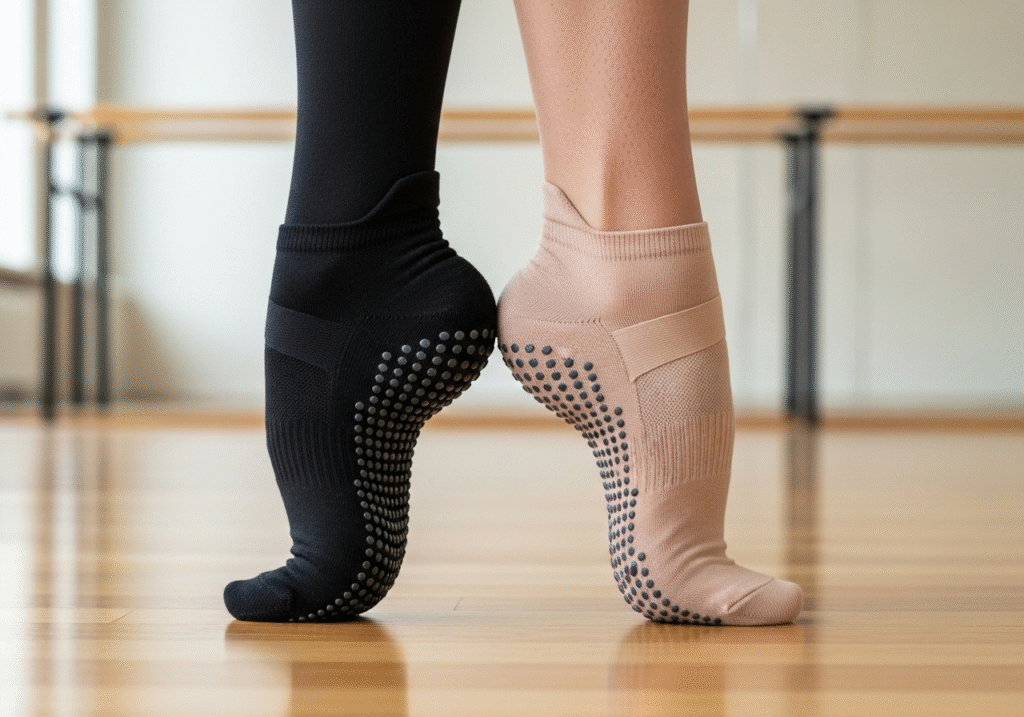
I remember losing balance in a contemporary class when my cotton socks skated on polished wood. After I switched to grip socks, every turn felt rooted yet smooth. Keep reading, and I’ll share how this small swap can lift your technique and safety.
What Are the Socks With Grip for Dance?
Hard floors squeak, toes burn, and momentum stalls without proper gear.
Grip socks for dance are soft knit socks fitted with silicone or rubber tread patterns that give dancers extra floor traction while preserving full foot flexibility.
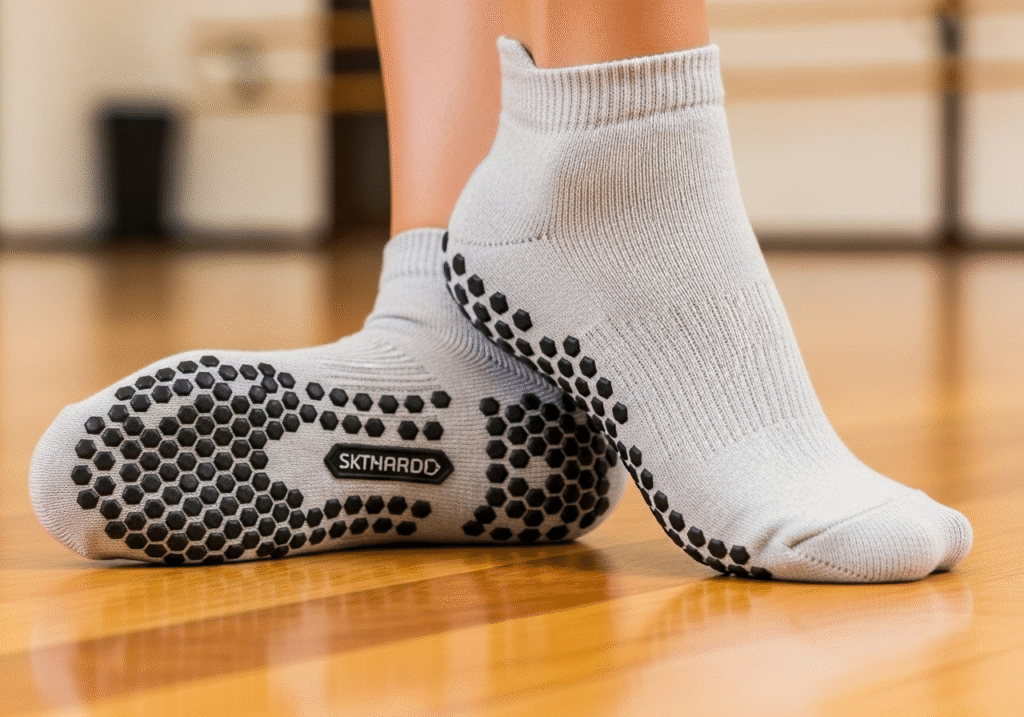
1. Construction Layers
- Outer yarn: nylon or bamboo resists abrasion from turns.
- Mid padding: thin terry at the ball and heel eases impact.
- Grip tread: silicone dots or waves line the sole for friction.
2. Style Variations
| Style | Key Feature | Best For |
|---|---|---|
| Full-sole | Grip across entire bottom | Floor barre & acro |
| Split-sole | Pads under heel and ball | Ballet and contemporary spins |
| Toeless | Open toes, grip on met pad | Pilates-inspired dance flows |
3. Sizing and Fit
I look for a snug arch band and a deep heel pocket. If the sock twists during a single pirouette, it is too loose. If toes curl, it is too tight. The right pair feels like a second skin yet never slips inside out.
4. Material Breathability
Vent mesh along the instep keeps sweat from pooling. That airflow keeps grip zones sticky instead of slick, especially during long rehearsals under hot stage lights. Once I found a bamboo-blend pair, post-class odor nearly disappeared.
What Is the Purpose of Dance Socks?
Raw feet blister, and hard shoes limit articulation. Dancers need a middle ground.
The primary purpose of dance socks is to protect skin while still allowing full range of motion, turning hard studio floors into responsive surfaces that match the dancer’s intent.
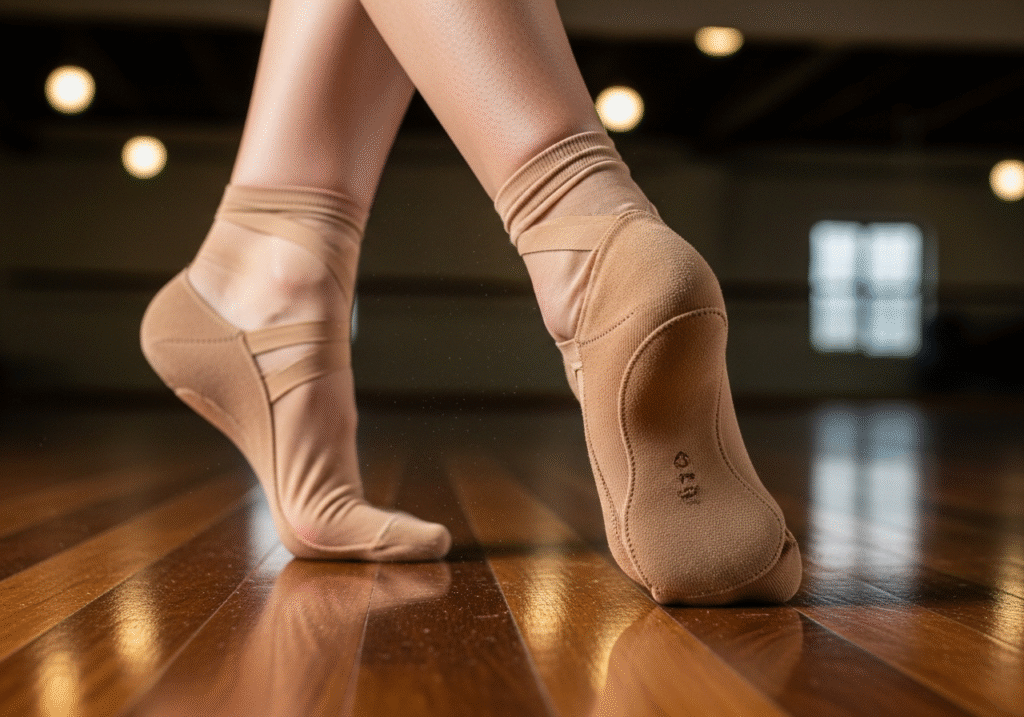
Protection Without Bulk
Barefoot floorwork can grind skin on the ball of the foot. Thin knit shields that spot. I finished a week-long workshop blister-free for the first time once I wore grip socks.
Enhanced Articulation
Shoes stiffen the arch. Socks bend with every tendu and relevé. My teacher noticed a cleaner point because fabric never fought my toes.
Hygienic Barrier
Studios host countless feet. A sock layer blocks direct contact with sweat and germs. I wash my pairs nightly and feel safer sharing sprung floors.
Support Through Compression
Many grip socks weave gentle compression bands. They hug the midfoot, cut swelling, and keep blood moving during marathon rehearsal days.
| Purpose Element | Barefoot | Regular Sock | Grip Sock |
|---|---|---|---|
| Skin protection | Low | Medium | High |
| Floor traction | Medium | Low | High |
| Arch articulation | High | High | High |
| Hygiene | Low | Medium | High |
These points add up to longer, more focused practice blocks. I waste less tape and spend more time refining choreography.
What Are the Advantages of Grip Socks?
Tiny slides, aching joints, and ruined rhythms plague dancers daily.
Grip socks advantage dancers by boosting traction, improving balance cues, reducing joint strain, and extending shoe-free practice time without injury.
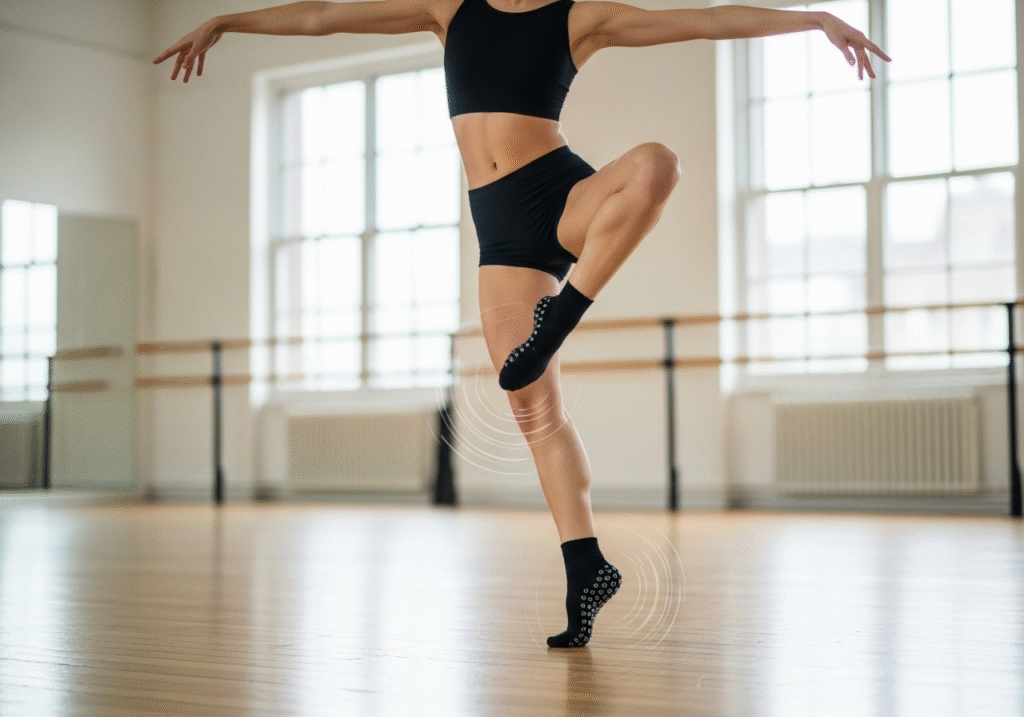
1. Controlled Traction
The silicone tread raises the static friction coefficient from about 0.3 (cotton) to roughly 0.6 on wood floors. That means spins start crisp, and sudden stops hit clean. My landing from a grand jeté now feels planted, not skittish.
2. Proprioceptive Feedback
Raised grip nodes press plantar nerves. That tactile input sharpens where my weight rests, aiding micro-adjustments in arabesque. Studies show textured insoles quicken balance reactions by milliseconds—enough to save a shaky pose.
3. Joint Relief
Less foot skid equals fewer knee torques. My chiropractor saw a drop in patellar strain once I made the switch. Grip socks keep the kinetic chain aligned from toe to hip.
4. Floor Versatility
From marley to hardwood to tile, one pair covers multiple surfaces. I packed lighter for touring—three grip pairs replaced sneakers and ballet flats during warm-ups.
| Advantage | Impact on Training |
|---|---|
| Higher friction | Cleaner pivots and landings |
| Better feedback | Faster balance correction |
| Reduced strain | Lower injury risk |
| Multi‐surface use | Travel convenience |
The sum of these gains lifted my rehearsal stamina and saved money on repeated physio visits.
Is It Better to Dance With Socks?
Dancers debate barefoot purity versus shoe support. Comfort sits somewhere in between.
It is often better to dance with grip socks because they merge barefoot articulation with added traction and protection, offering a balanced option for most modern studio work.
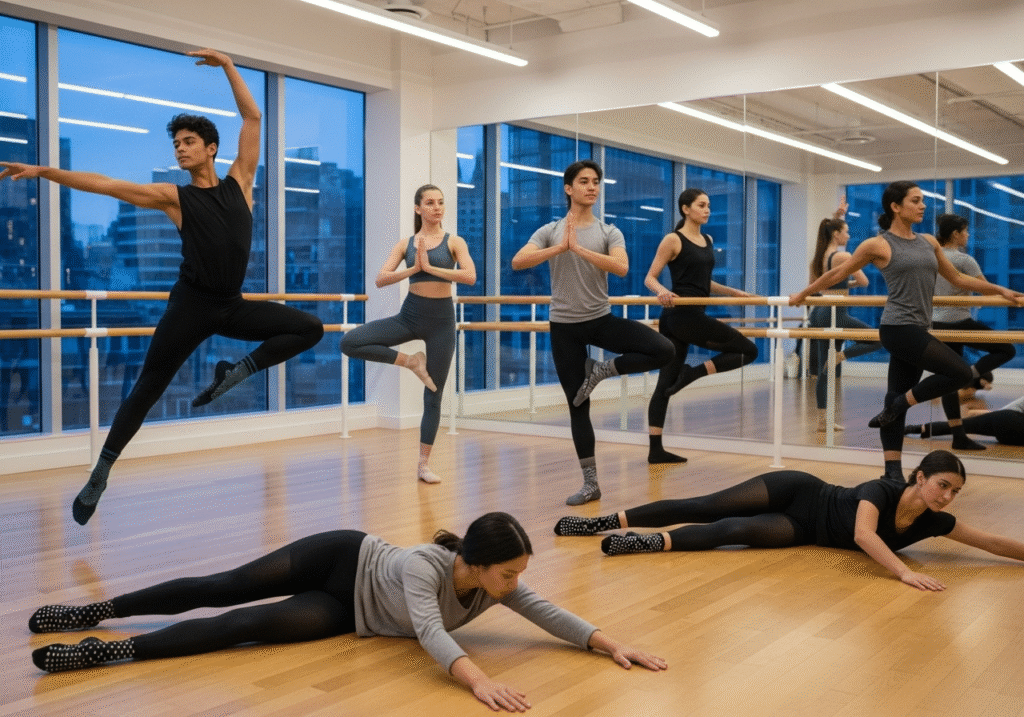
Comparing Three Options
| Factor | Barefoot | Regular Cotton Socks | Grip Socks |
|---|---|---|---|
| Traction | Medium | Low | High |
| Skin safety | Low | Medium | High |
| Floor feel | High | Medium | High |
| Joint support | Low | Low | Medium |
| Hygiene | Low | Medium | High |
Balancing Freedom and Safety
Barefoot grants full toe splay but risks friction burns. Traditional socks guard skin but slide wildly. Grip socks thread the needle—natural movement plus security. After testing all three, I felt most expressive and least anxious in grip socks.
Practical Considerations
Mari, one of my company dancers, struggled with cold studio floors. Her tendons stiffened until she tried thermal grip socks1. Warmth returned, and so did her plié depth2.
When Barefoot Wins
Certain contact improv pieces thrive on skin-to-floor contact. I still strip socks for those numbers, yet I warm up in grips to keep ankles safe.
Choosing grip socks is not a rule but a versatile default. Dancers can adapt pairings to choreography without swapping footwear every five minutes.
Conclusion
Grip socks give dancers the traction, protection, and freedom needed for safer, sharper training—bridging the gap between barefoot artistry and shoe stability.
Related:
